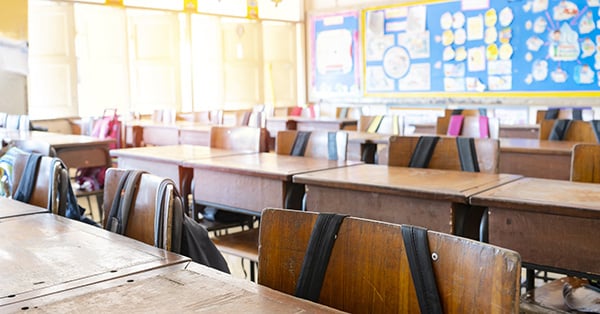
Teachers tend to spend an outsized amount of their attention on just one or two students in a given classroom. These students sometimes are acting out, not completing work, or actively distracting other students from their tasks. Difficult students make it hard to feel in control of a classroom and create frustration when you cannot accomplish the goals of your teaching plans.
While these children may, on the surface, seem to be purposefully making classroom life difficult, this is rarely the whole story. Many students are going through something outside of the classroom that drives their poor behavior inside the classroom. While a teacher cannot make those difficult circumstances go away, they can choose to react with compassion, adjust to the student's choices, and find a way to communicate with them.
Reasons A Student May Behave in a Difficult Manner
While there are certainly students whose occasional misbehavior is a one-off action of unclear origin, most persistently difficult children have an underlying reason for their behavior. For one thing, young children imitate the behavior they see around them, and this can lead to long-term habits of imitating chaotic behavior they see in older children, parents, and other adults around them. There are also at least three other common sources of difficulty in school-aged children.
1. Bad History of Authority Figures
Unfortunately, children do sometimes experience abuse at home, which can lead to a belief that all authority figures will treat them poorly. In such cases, the teacher begins a relationship with a student at a disadvantage, since they assume the teacher already dislikes them. An unfortunate cycle that can result involves the child misbehaving to understand whether a compassionate adult will continue to be kind, pushing boundaries. The authority figure, predictably, does become upset or frustrated, reinforcing the child's low self-worth and unhappiness.
This cycle can be broken in some ways, but it is key to give yourself tools for patience since the process can take time. Consider the "Solving Classroom Discipline Problems" course at the Portland Community College to prepare yourself for some potential negative-authority-figure situations.
2. Experiencing a Learning Disability, Possibly an Undiagnosed or Untreated One
Learning disabilities affect many students but can go undiagnosed if a child can effectively mask what is really going on, whether they are experiencing trouble reading with dyslexia or trouble focusing on particular schoolwork types with a processing disorder. Children feel shame when they cannot complete tasks at the same rate or with the same accuracy as their peers. Cultivating a classroom environment that is as low on shame as possible is incredibly valuable, since helping students see that everyone learns differently is going to serve them well later in life.
At Portland Community College, "Empowering Students With Disabilities" is full of ideas for how to help students see proactive paths forward as they get to know themselves and their unique learning abilities.
3. Academically Gifted But Unchallenged By Current Coursework
Teachers have to focus on so many things at once that they may see a difficult student misbehaving and acting out and assume it is because they cannot do the work. This is sometimes the case, but there is another possibility as well.
Gifted students who can complete work easily are often quick to understand and finish their work, growing bored quickly because they must wait for their peers to catch up. At times, their well-functioning brains comprehend a task but want a bigger challenge, making them skip homework and class assignments because they are too easy, rather than because they are too hard.
This is a tough spot for a teacher, but finding suitable challenges for a range of students is an incredible skill that helps gifted students to stop being difficult and avoid feeling alienated from their class. Pay attention to the things that do engage your less-focused students, and you may be able to offer a challenge that really intrigues them. Our "Survival Kit for New Teachers" at PCC may offer you more valuable options for helping gifted kids thrive in your classroom.
Getting Through to Difficult Students
Of course, these three reasons may not be the entire story of a students' misbehavior. It's possible to experiment with new techniques for classroom organization and management in order to reduce some more widespread difficulties. However, for children who have internalized bad associations with authority figures or with school, it's important not to make that child feel further alienation. If you can help the student work through to the heart of some of their behaviors, you can provide enrichment or kindness that may assist in repairing some past negative experiences.
Differentiation in the classroom is key, and recognizing that both circumstances and innate abilities will impact your students helps you work to make your activities work for different children. If you'd like to learn more about how to work with difficult students, Portland Community College's Educator Professional Development courses are a great place to start.


